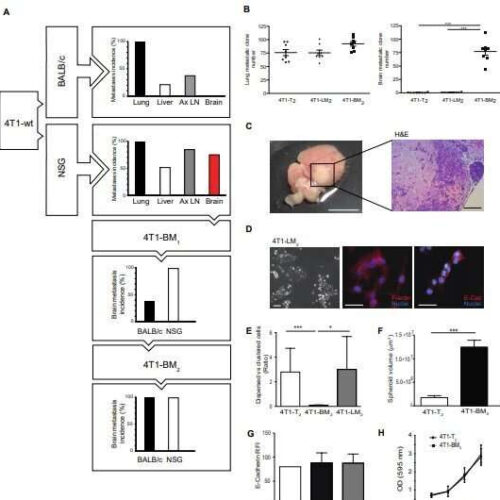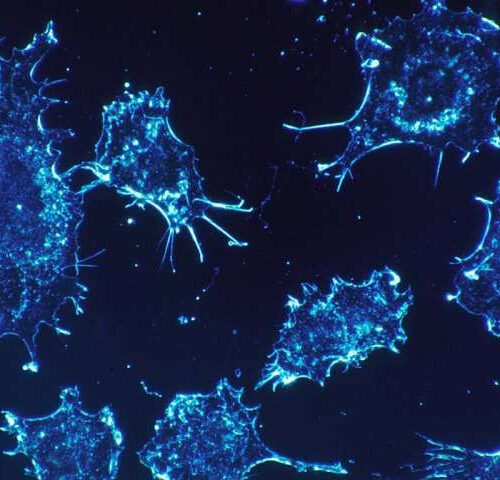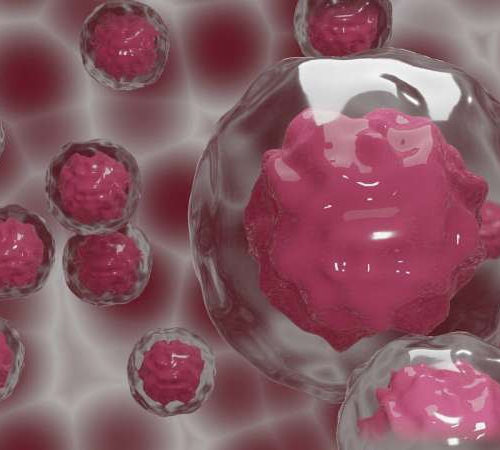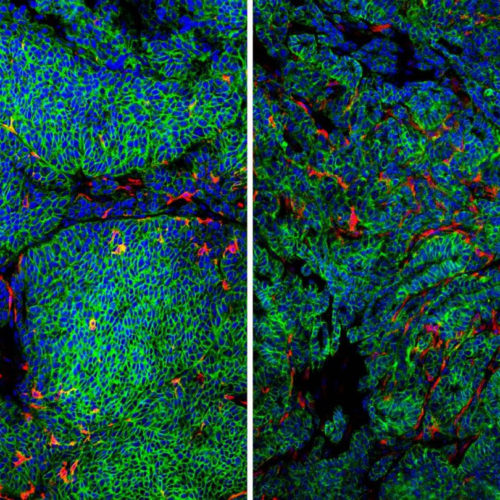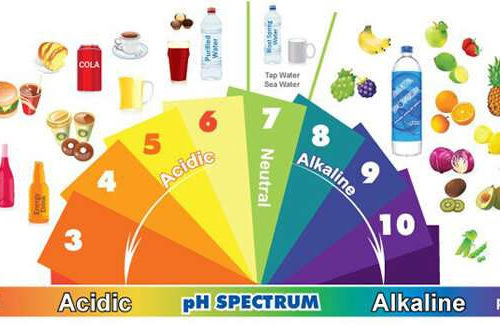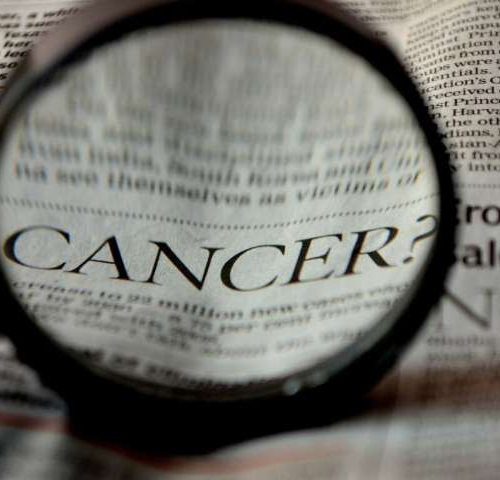by Delthia Ricks, Medical Xpress In vitro characterization of in vivo / ex vivo-derived 4T1 metastatic cell lines. (A) Schematic representation of the procedure used to generate the 4T1-BM2 metastatic cell line. (N=2, n=10). (B) Lung and brain metastatic clones of 4T1-T2, 4T1-LM2 and 4T1-BM2 cells orthotopically injected in BALB/c mice. N=2-3, n=8-10. (C) Macroscopic...
Tag: <span>breast cancer cells</span>
Scientists identify unique breast cancer cells that control their ability to proliferate and colonize the lungs
by The Mount Sinai Hospital Credit: Pixabay/CC0 Public Domain Scientists from The Tisch Cancer Institute have uncovered a mechanism by which certain breast cancer cells regulate their own metastases, fuel dissemination from the original tumor site, and determine routes to invade distant organs such as the lungs, according to a study published in Cell Reports in September....
Removing microRNAs from triple-negative breast cancer cells can reverse its spread
by University of Westminster Credit: CC0 Public Domain A new study led by the University of Westminster shows that removing small genetic parts of our genomes called microRNAs from triple negative breast cancer cells can reverse its spread. The study, published in the International Journal of Molecular Sciences, also identified that microRNAs could be targeted for...
How breast cancer cells sneak past local immune defenses
COLD SPRING HARBOR LABORATORY PHOTOMICROGRAPHS OF MOUSE TUMORS EXPRESSING A FACTOR THAT SUPPRESSES A LOCAL IMMUNE RESPONSE (LEFT) AND ONE THAT PERMITS THAT IMMUNE RESPONSE (RIGHT). RESEARCHERS DISCOVERED THAT CANCER CELLS EXPRESSING THE PROTEIN… view more CREDIT: XUE-YAN HE, EGEBLAD LAB, CSHL. Cold Spring Harbor Laboratory (CSHL) Associate Professor Mikala Egeblad and her colleagues describe...
Highly acidic foods can increase breast cancer recurrence and mortality among past smokers
by Padma Nagappan, San Diego State University Fresh and processed meats, cheese, eggs, sugary food, soft drinks, and grains are acid-producing foods. For cancer survivors who have a reduced capacity to process such foods that produce sulfuric, phosphoric, or organic acids, it can increase their mortality risk trifold if they also smoked in the past,...
Scientists stop breast cancer cells from spreading
by Michael Addelman, University of Manchester Biologists have discovered a way to stop cells from one of the most aggressive types of breast cancer spreading in the lab. The study points towards new avenues of research to combat the devastating disease. The results of the study of triple-negative breast cancer by the team from the...

